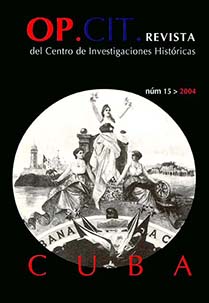Abstract
This article examines some of the factors that made it difficult for democratic life to thrive in the first Cuban Republic. Using the concept of "civic culture", it examines the development of the discourse of citizenship, the approach to political representation and alternation and the initiatives of the first legislation. The result was a contradictory regime which linked the birth of the State with the constitution of a nominally democratic system, unable to create the basic conditions required to sustain the people‘s trust and the representativeness of the men holding public office.

